Dillon Knox
A neural prosody encoder for end-ro-end dialogue act classification
May 11, 2022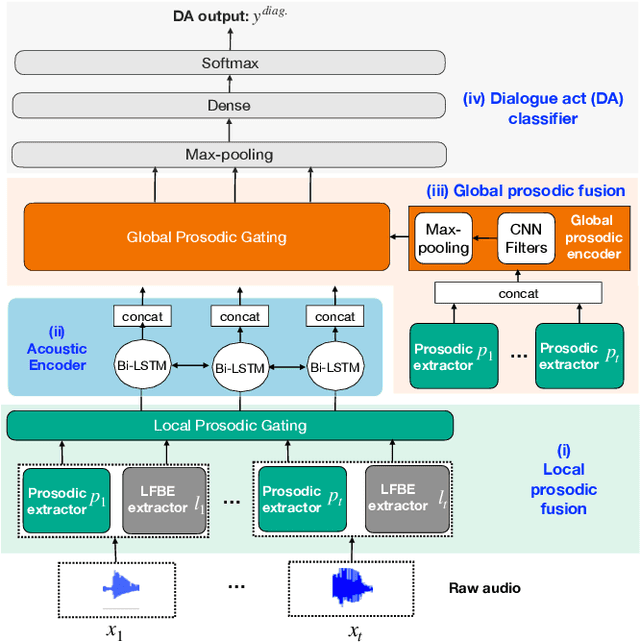

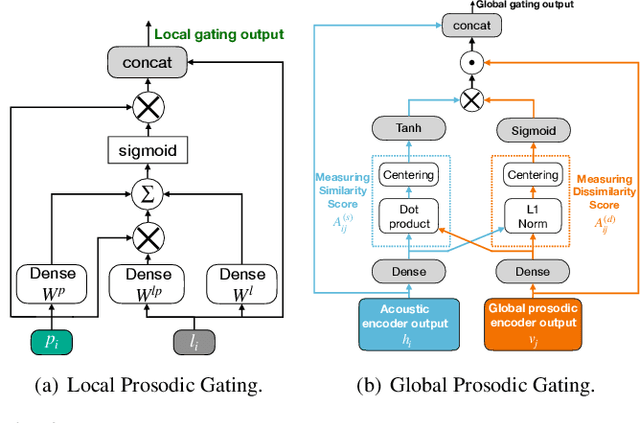

Abstract:Dialogue act classification (DAC) is a critical task for spoken language understanding in dialogue systems. Prosodic features such as energy and pitch have been shown to be useful for DAC. Despite their importance, little research has explored neural approaches to integrate prosodic features into end-to-end (E2E) DAC models which infer dialogue acts directly from audio signals. In this work, we propose an E2E neural architecture that takes into account the need for characterizing prosodic phenomena co-occurring at different levels inside an utterance. A novel part of this architecture is a learnable gating mechanism that assesses the importance of prosodic features and selectively retains core information necessary for E2E DAC. Our proposed model improves DAC accuracy by 1.07% absolute across three publicly available benchmark datasets.
Perceptual-based deep-learning denoiser as a defense against adversarial attacks on ASR systems
Jul 12, 2021
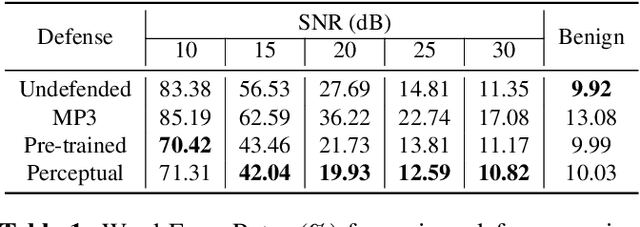
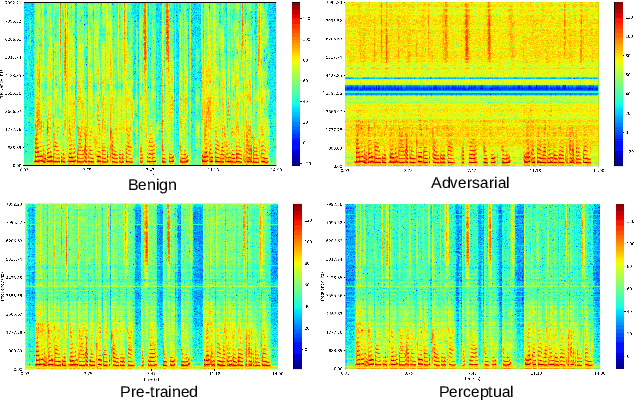
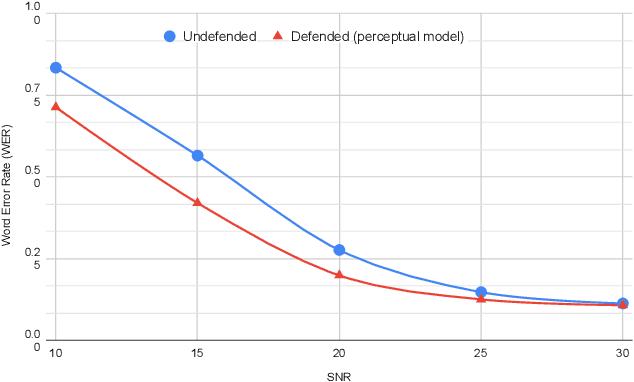
Abstract:In this paper we investigate speech denoising as a defense against adversarial attacks on automatic speech recognition (ASR) systems. Adversarial attacks attempt to force misclassification by adding small perturbations to the original speech signal. We propose to counteract this by employing a neural-network based denoiser as a pre-processor in the ASR pipeline. The denoiser is independent of the downstream ASR model, and thus can be rapidly deployed in existing systems. We found that training the denoisier using a perceptually motivated loss function resulted in increased adversarial robustness without compromising ASR performance on benign samples. Our defense was evaluated (as a part of the DARPA GARD program) on the 'Kenansville' attack strategy across a range of attack strengths and speech samples. An average improvement in Word Error Rate (WER) of about 7.7% was observed over the undefended model at 20 dB signal-to-noise-ratio (SNR) attack strength.
 Add to Chrome
Add to Chrome Add to Firefox
Add to Firefox Add to Edge
Add to Edge